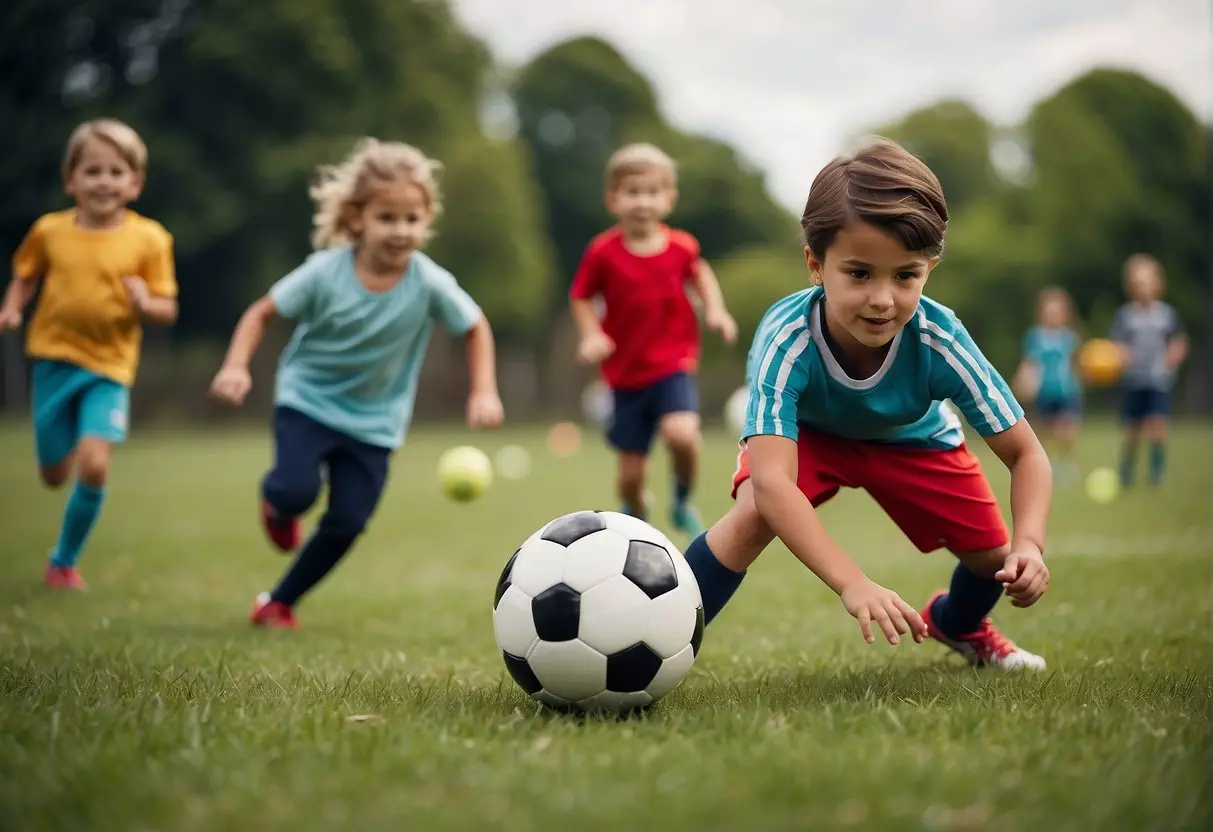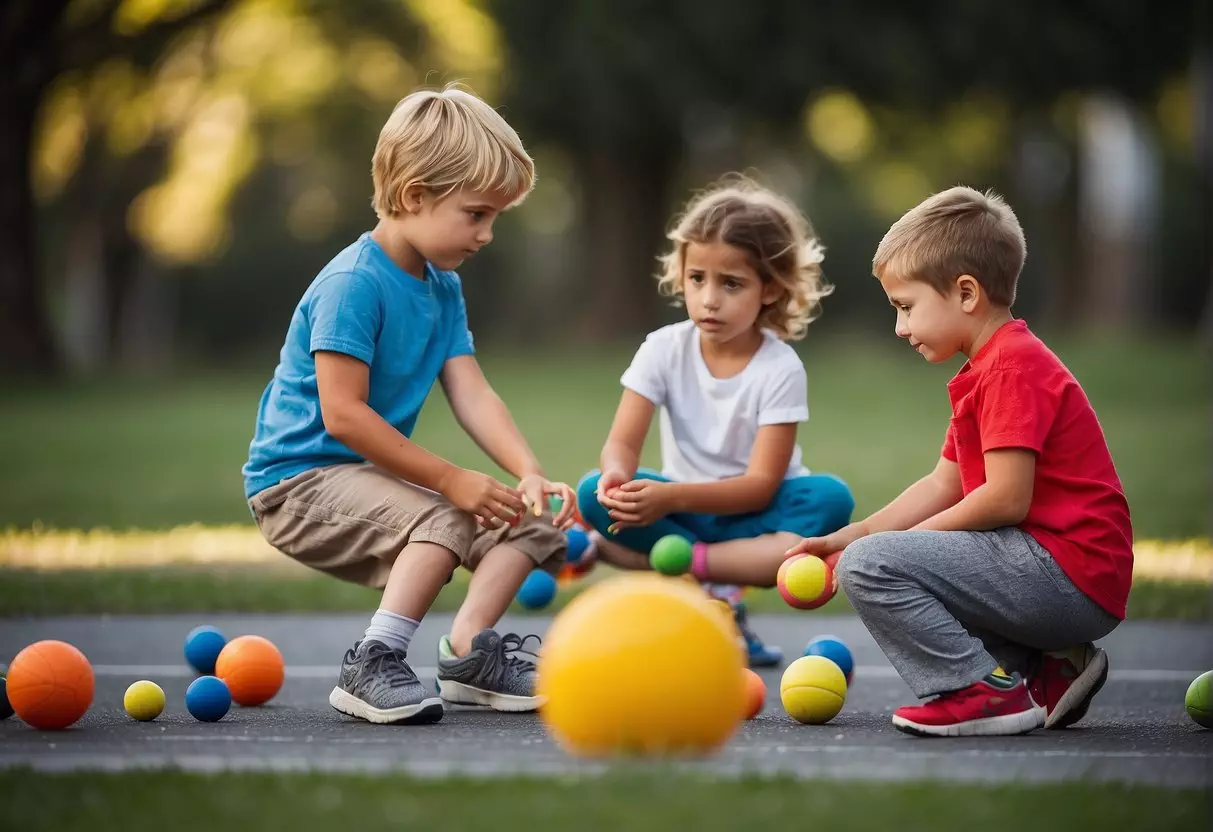Afterschool Activities: Boosting Kids’ Confidence and Skills
After the final school bell rings, the learning and fun don’t have to stop. Engaging in after-school activities can be a fantastic way for kids to explore their interests, develop valuable skills, and make lasting friendships. These activities stretch beyond the confines of the traditional classroom, offering children a diverse landscape of opportunities. Whether it’s delving into sports, the arts, or STEM projects, there’s an after-school program designed to spark enthusiasm in every young learner.

Your child’s education is more than just academics; it encompasses the overall development of their social, emotional, and cognitive abilities. After-school programs provide a playground for practical learning, where kids can apply classroom lessons in real-world scenarios. Imagine your child building a bridge in a STEM workshop, perfecting their serve on the tennis court, or painting a masterpiece that expresses their unique perspective. These experiences not only reinforce educational concepts but also promote life skills like teamwork, problem-solving, and time management.
Table of Contents
Types of Afterschool Activities
Afterschool activities offer you diverse options to explore your interests and develop new skills. Whether you’re athletically inclined, creatively gifted, or a budding scholar in STEM, there’s a pursuit tailored to your passions and educational growth.
Sports and Physical Activities
If you thrive on movement and competition, organized sports like soccer, basketball, and volleyball can be both fun and invigorating. These sports not only help in building teamwork and discipline but also improve your physical fitness. For a less structured environment, roller skating at a local rink or joining a dance class offers a great mix of exercise and freestyle fun.
Creative Arts and Crafts
Unlock your artistic potential through various arts and crafts activities. Whether it’s painting a canvas or sculpting with clay, these activities foster creativity and enhance motor skills. Meanwhile, music lessons, ranging from voice to a variety of instruments, allow you to express yourself melodically and develop a lifelong appreciation for the arts.
Educational and STEM Programs
Feed your curiosity and advance your knowledge in science, technology, engineering, and math through specialized afterschool programs. Practical, hands-on STEM activities like building a robot or engaging in coding lessons not only prep you for the digital world but also teach problem-solving and critical thinking skills that are vital for your academic and career futures.
Afterschool Programs for Different Age Groups

Afterschool activities can play a pivotal role in the development of children of all ages. From fostering creativity among preschoolers to enhancing academic skills in older kids, there’s a range of programs designed to cater to the varying needs and interests of students.
Activities for Preschoolers
Preschoolers thrive on exploration and playful learning. At this stage, your little ones benefit from activities that bolster their basic motor skills and social development. For example, arts and crafts projects allow them to express their creativity while improving their fine motor skills. Check out Art for Kids Hub for an array of friendly and age-appropriate art activities. Moreover, simple science experiments can captivate their curiosity about the world around them.
Fun for School-Aged Children
As your children progress to kindergarten and the school-aged bracket, you can introduce them to more structured activities. Quality after-school programs for these age groups often include a mix of academic support and physical activities. At this stage, homework assistance becomes crucial as your kids start dealing with more challenging academic material. For their physical activity needs, casual or organized sports can provide the exercise and team-building experiences valuable for their growth. Access resources like Afterschool Alliance’s Best Practices for insights into age-appropriate activities.
Challenges for Older Kids
Older kids, those in higher grades, often look for afterschool programs that align with their interests and prepare them for future academic or career paths. Clubs focusing on specialized subjects like coding or robotics can propel their interests in technology and engineering, as can an AI club. Consistent engagement in these programs can contribute not only to their current school attendance and performance but also to their long-term educational goals.
Enhancing Learning and Development

Afterschool activities play a pivotal role in your child’s educational journey, honing social skills, and sparking creativity. They provide a structured environment where learning continues beyond the school day, leading to improvement in behavior and grades.
Educational Benefits
Engaging in after-school activities can lead to a significant enhancement in your academic capabilities. Research shows that consistent participation in these programs often translates to better study habits and higher test scores. For example:
- Homework Assistance: Afterschool programs offer you guided time to complete assignments, reducing stress and promoting a greater sense of accomplishment.
- Enrichment Opportunities: These activities provide exposure to a wide array of subjects, often not covered during school hours, supporting a well-rounded education.
Building Social Skills
The social component of after-school programs is invaluable. You have the opportunity to interact with peers in diverse settings, which facilitates the development of key social skills. You learn teamwork, communication, and empathy, which are critical for your personal growth. According to a Harvard Graduate School of Education article, the right environment fosters meaningful relationships and community engagement.
Fostering Creativity
Afterschool activities aren’t just about reinforcing learning; they’re a playground for your imagination. They often offer a less structured environment for you to experiment and take creative risks—be it through art projects, drama clubs, or science experiments. Creativity is not just about artistic expression but also about problem-solving and innovation in everyday situations.
Role of Parents and Caregivers
Parents and caregivers play a pivotal role in maximizing the benefits of after-school activities. Your active involvement and support can greatly enhance your child’s experiences in these programs.
Involvement in Selection
When selecting an after-school activity, your input is important. You know your child’s interests, strengths, and areas needing enrichment, making you well-equipped to guide them toward activities that complement their school day. For example, if your child shows a keen interest in science, you may consider enrolling them in a STEM-focused program that aligns with their curiosity.
Providing Support and Encouragement
Your encouragement is key to your child’s success in afterschool activities. Whether it’s driving them to a session or discussing what they learned, your support can boost their self-esteem and motivation. Helping with homework or projects related to their after-school programs also shows that you value their efforts and growth. By acknowledging their achievements, you instill a sense of pride and ownership in their engagement with enriching activities.
DIY Afterschool Activities at Home

Engaging in afterschool activities is an excellent way to unwind and learn something new—in the comfort of your home. From crafting unique items to conducting simple science experiments, these activities are sure to spark your creativity and satisfy your curiosity.
Crafting Your Own Fun
Homemade crafts offer endless opportunities for you to express your artistic side. Here’s how to get started:
- Build a Blanket Fort: Gather blankets, cushions, and chairs to create your own cozy hideaway. Use strings of lights for a magical touch.
- Puppet Show Extravaganza: Create and stage your own play. Make your own puppets using socks, yarn, and buttons or any crafting material you have at hand.
- Baking and Cooking: Whip up some simple recipes like ice cream in a bag. Mix ingredients in a sealable bag and shake it until you’ve made your own dessert.
Imagination is your only limit when it comes to DIY crafts. Turn every idea into a hands-on activity, whether it’s designing jewelry or creating custom t-shirts with fabric paint.
Homemade Science Experiments
Science doesn’t always require a lab. These experiments can be done with household items:
- Soap Foam Fun: Mix dish soap with water and a drop of food coloring to make rainbow soap foam. Experiment with different colors and enjoy the sensory play.
- Slime Time: Combine school glue with a bit of borax and water to create your own gooey slime. Adding glitter or beads makes it even more fun.
- Kitchen Chemistry: Learn about chemical reactions by baking some treats. Baking is a practical chemistry experiment that results in delicious outcomes!
Experimenting at home is not only safe but also a fantastic way to grasp basic scientific concepts. Watch in awe as simple ingredients transform before your eyes.
